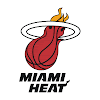It's safe to say that car makers Spyker have come a long way from the original idea of the two brothers, coachbuilders in Amsterdam, who founded the company back in 1898. But the basic idea stays the same: make quality cars that are also innovative.
But the Spyker company we know today has gone one major transformation from its beginning. Not many people know the comopany founded by Jacobus and Hendrik-Jan Spijker in 1898 went bankrupt in 1922, despite efforts to make it profitable. Despite this, Spyker was known at the time for making reliable cars that were regarded as the “Rolls Royce of the continent”.
The 1903 60/80 HP was a very innovative car for its time, with a 6-cylinder engine , four wheel drive and brakes on all 4 wheels. Another very interesting invention was a patented dust shield which was fitted under the car in order to help it from stirring dust on dirt roads.
Spyker cars made history when they completed the grueling Pekin to Paris marathon, arriving in second place. By this time, the company had already established a name for itself. During WWI, the company began producing airplanes and airplane engines in order to stay in business.
After the war, car production resumed but Spyker went bankrupt in 1922, being bought by a British distributor. Finally, when all the money ran out, the factory closed its doors for good in 1929. But the brand and what it stood for remained deeply embedded on the car industry. That's why at the turn of the century, in 2000, Victor Muller and Maarten de Brujin founded a new company bearing the Spyker name, determined to carry on the legacy of the Dutch automaker.
The new Spyker builds flashy and exclusive sports cars like the C8 Spyder and the C8 Laviolette. Production continued in 2005 with the Spyker C12 LaTurbie and in 2007 with the D12 and C12 Zagato. Their cars were briefly featured on the F1 circuit in the 207 season, equipped with Ferrari engines.
Reference: www.autoevolution.com
Subscribe to:
Post Comments (Atom)















































0 comments:
Post a Comment